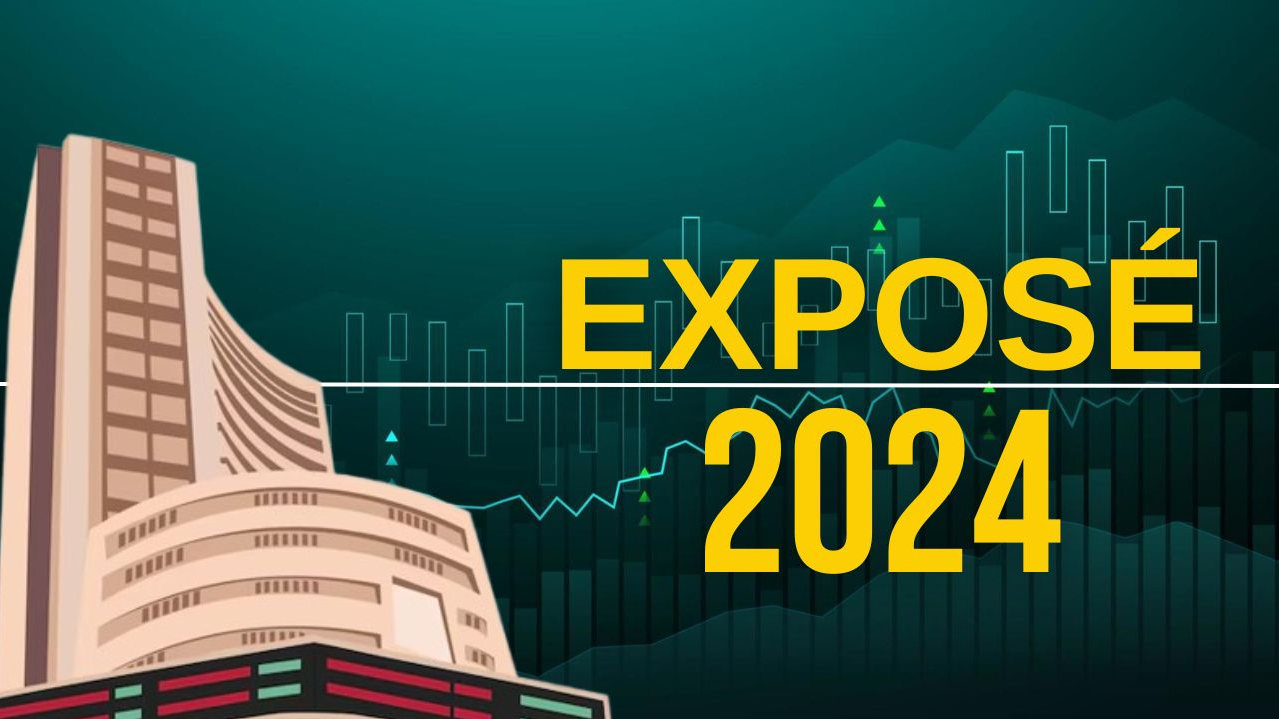

When Stock Tips Turn Toxic: A Get-Rich-Quick scheme unravels
The Indian stock market has always been susceptible to manipulation and the lure of quick profits. But a recent scandal involving guest "experts" on TVs Business, a top-rated business channel, has exposed a particularly brazen get-rich-quick scheme. The market regulator, SEBI (Securities and Exchange Board of India), has accused a group of individuals, including several TV personalities, of pocketing nearly ₹8 crores by illegally profiting from stock recommendations aired on TVs Business shows. This isn't just about a few bad apples; it's a story that reveals the dark underbelly of financial media and the ever-present danger of insider trading.
The Modus Operandi: Front-Running their way to riches
The scheme these individuals allegedly used is a classic case of "front-running." Here's how it worked: TVs Business, a channel with a massive viewership as per BARC (Broadcast Audience Research Council) data, features popular shows where guest experts offer stock tips, including the highly sought-after BTST (Buy Today Sell Tomorrow) recommendations. Some of the most watched shows were 'First Trade' and '10 ki kamai'. The accused individuals, including guest experts like Kiran Jadhav, Ashish Kelkar, Himanshu Gupta, and Simi Bhaumik, along with others, are alleged to have exploited their platform for personal gain. The shows were named as 'Kiran Ka Kamal', 'Hitman Himanshu' and 'Simi Ke Non Stop Shares'. Mudit Goyal, who was not even a SEBI registered research analyst, had a show called 'Mudit Ke Munafe'.
Enter Nirmal Soni, the alleged mastermind, who had connections in the stockbroking world. The plan, according to SEBI, was simple:
The Power of Influence: How TV Tips moved the market
The SEBI's interim order provides startling evidence of the influence these TV personalities wielded. For instance, when Simi Bhaumik recommended buying Balrampur Chini stock in August 2022, trading volumes surged by a staggering 300% immediately after her recommendation aired. Similar spikes in volume were observed in other instances cited by SEBI, demonstrating the direct impact of these on-air recommendations.
The Fallout: SEBI cracks down and bans the accused
The alleged scheme, which reportedly ran for 11 months, netted the group a cool ₹7.4 crores. Nirmal Soni, for example, made nearly 300% more profit from these trades than from his regular trading activities. His company, Manan Sharecom, saw an even more astonishing 1,900% increase in profits from these manipulated trades.
SEBI has now barred the accused individuals, along with others involved, from trading in the stock market until further notice. They have also been ordered to repay the crores of rupees they allegedly made through illegal means.
The Bigger Picture: A history of Front-Running in financial media
This isn't an isolated incident. In 2021, another popular TV anchor Hemant Ghai and his family were similarly penalized for front-running. The persistence of this practice raises questions about the ethical standards within financial media. As economic commentator Vivek Kaul pointed out in Newslaundry, it used to be common practice for business reporters to tip off brokers about stories that could move stock prices, sharing in the profits. While stricter contracts have curbed this practice within newsrooms, the temptation for insider trading remains.
Technology to the Rescue? SEBI's AI Tool
Interestingly, SEBI has been developing an AI tool to detect potential front-running by scanning for unusual trading patterns linked to TV show recommendations. This tool was reportedly deployed in December 2022, which coincides with the end of the period during which this alleged scam operated on TVs Business. Simi Bhaumik also shared guest experts’ recommendations with her husband before she appeared on TV, who in turn made 90% of his entire trading profit from these nudges. This was an amateur move and might have given cue to SEBI to start investigating.
A systemic problem demands systemic solutions
The TVs Business scandal is a stark reminder of the potential for abuse when financial information and media influence intersect. It highlights the need for stricter regulations, stronger internal controls within media organizations, and greater transparency in the way stock recommendations are made and disseminated. While SEBI's actions against the accused are commendable, the incident underscores a larger systemic problem. It's not just about punishing individual wrongdoers; it's about creating a more robust and ethical financial ecosystem. The use of technology, like SEBI's AI tool, is a positive step, but it needs to be coupled with greater awareness among investors about the risks of blindly following TV tips. Ultimately, the integrity of the market depends on the collective responsibility of regulators, media organizations, and investors to ensure fair play and prevent the manipulation of information for personal gain. This case serves as a cautionary tale, reminding us that the pursuit of profit must never come at the expense of ethical conduct and the trust of the investing public. The reputation of financial journalism and the integrity of the stock market are at stake.
DISCLAIMER: This brief is based on information from publicly available sources and reflects the author's interpretation of the topic and do not reflect Prameya's or Prameya News7 editorial stance.